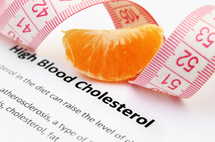COMPREHENSIVE CARDIOVASCULAR TESTING

Did you know that up to 50% of people who have suffered heart attacks had 'normal' cholesterol numbers?
Knowing your levels of LDL (bad) and HDL (good) cholesterol is only a small part of the picture in determining your risk of heart disease. There are many other cardiovascular markers that are important and when combined with levels of routine cholesterol measurements, can more accurately determine the risk of heart disease.
The following cardiovascular markers are not part of routine cholesterol blood tests:
Lipoprotein(a) - is an LDL cholesterol particle with an apolipoprotein(a) attached to it. It is involved in plaque formation, which is what ultimately causes blocked arteries and can lead to a heart attack or stroke. Elevated levels are a very strong independent risk factor for cardiovascular disease. Its presence is 10 times more atherogenic than LDL cholesterol and does not respond to treatment with statin drugs.
LDL particle size - Did you know that there are actually 5 types of LDL cholesterol particles that vary in size? The smaller the LDL cholesterol particle, the more easily it can penetrate the artery wall and lead to plaque formation. Measuring LDL particle size is important because you can have 'normal' levels of LDL cholesterol, however if those LDL cholesterol particles are small in size, your risk of heart disease is elevated. Treatments can help to modify LDL particles to larger sizes, rendering them less of an atherogenic risk factor.
Oxidized LDL - The mere presence of LDL cholesterol is not harmful. However, if LDL cholesterol becomes oxidized it can lead to plaque formation. If oxidized LDL levels are elevated, therapeutic strategies can be implemented to reduce oxidation.
Remnant lipoprotein (RLP) - Unlike LDL cholesterol which needs to be oxidized to form plaque, RLP can be taken up by cells directly to form plaque, even when they are not oxidized. Elevated RLP has been found in heart attack survivors as well as individuals with significant atherosclerosis and increases platelet aggregation. Heredity plays a large role in RLP levels, but certain foods can reduce it.
Homocysteine - elevated levels are implicated in stroke, heart disease, dementia, and Alzheimer's disease. Increased levels cause a 2-3 fold increase in the risk of cardiovascular events. Nutritional supplementation can reduce levels.
Clinical study shows that Naturopathic Medicine in addition to regular medical care reduces the risk of cardiovascular disease
In comparison to regular medical care, the addition of Naturopathic medical care over 1 year to individuals at an increased of cardiovascular disease reduced the prevalence of metabolic syndrome by over 16% and decreased the 10-year cardiovascular risk by over 3%.
See the article published in the leading medical journal CMAJ by clicking here.
Knowing your levels of LDL (bad) and HDL (good) cholesterol is only a small part of the picture in determining your risk of heart disease. There are many other cardiovascular markers that are important and when combined with levels of routine cholesterol measurements, can more accurately determine the risk of heart disease.
The following cardiovascular markers are not part of routine cholesterol blood tests:
Lipoprotein(a) - is an LDL cholesterol particle with an apolipoprotein(a) attached to it. It is involved in plaque formation, which is what ultimately causes blocked arteries and can lead to a heart attack or stroke. Elevated levels are a very strong independent risk factor for cardiovascular disease. Its presence is 10 times more atherogenic than LDL cholesterol and does not respond to treatment with statin drugs.
LDL particle size - Did you know that there are actually 5 types of LDL cholesterol particles that vary in size? The smaller the LDL cholesterol particle, the more easily it can penetrate the artery wall and lead to plaque formation. Measuring LDL particle size is important because you can have 'normal' levels of LDL cholesterol, however if those LDL cholesterol particles are small in size, your risk of heart disease is elevated. Treatments can help to modify LDL particles to larger sizes, rendering them less of an atherogenic risk factor.
Oxidized LDL - The mere presence of LDL cholesterol is not harmful. However, if LDL cholesterol becomes oxidized it can lead to plaque formation. If oxidized LDL levels are elevated, therapeutic strategies can be implemented to reduce oxidation.
Remnant lipoprotein (RLP) - Unlike LDL cholesterol which needs to be oxidized to form plaque, RLP can be taken up by cells directly to form plaque, even when they are not oxidized. Elevated RLP has been found in heart attack survivors as well as individuals with significant atherosclerosis and increases platelet aggregation. Heredity plays a large role in RLP levels, but certain foods can reduce it.
Homocysteine - elevated levels are implicated in stroke, heart disease, dementia, and Alzheimer's disease. Increased levels cause a 2-3 fold increase in the risk of cardiovascular events. Nutritional supplementation can reduce levels.
Clinical study shows that Naturopathic Medicine in addition to regular medical care reduces the risk of cardiovascular disease
In comparison to regular medical care, the addition of Naturopathic medical care over 1 year to individuals at an increased of cardiovascular disease reduced the prevalence of metabolic syndrome by over 16% and decreased the 10-year cardiovascular risk by over 3%.
See the article published in the leading medical journal CMAJ by clicking here.